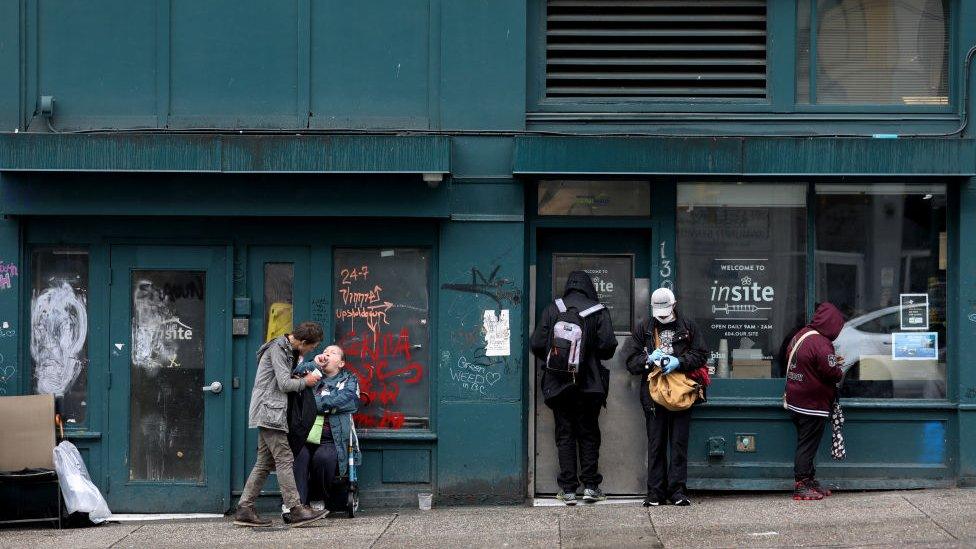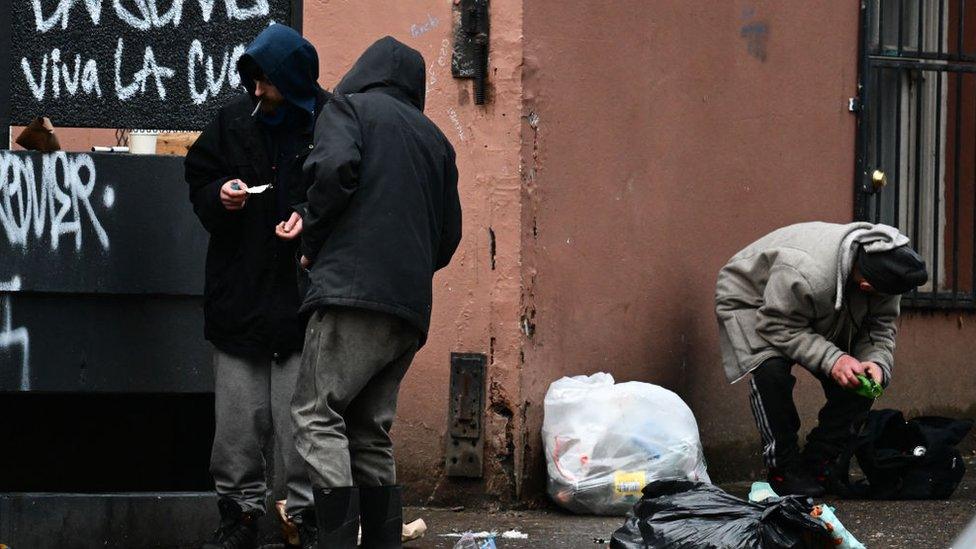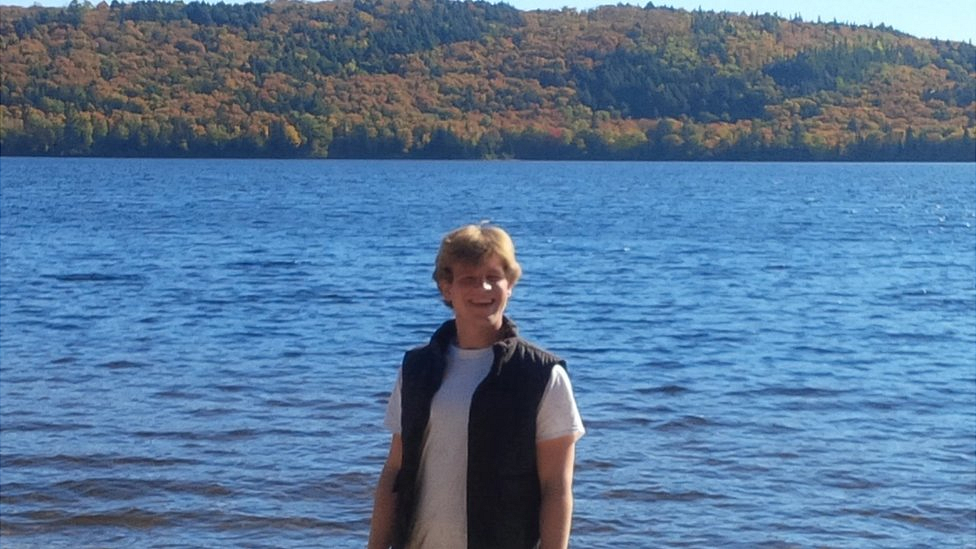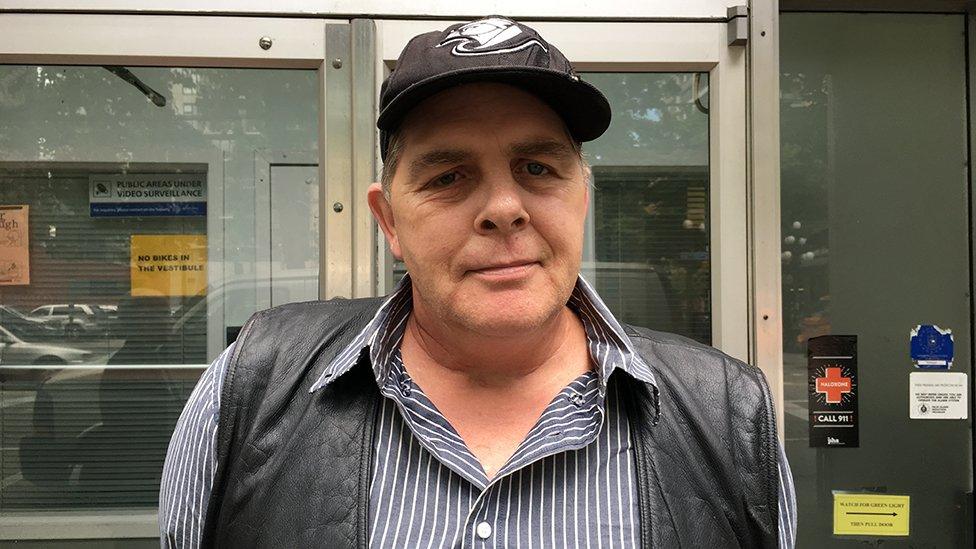British Columbia to back off drug decriminalisation project
- Published

Drugs would remain decriminalised at places like Insite, a supervised consumption site
A Canadian province will recriminalise the use of hard drugs in public, partly rolling back a landmark policy meant to help tackle a deadly opioid crisis.
British Columbia's decriminalisation project began in January 2023 as a three-year pilot programme.
But it has faced pushback over concerns around public disorder and drug use.
Police will soon have the power to again address drug use in all public places, including hospitals, restaurants, parks and beaches.
"While we are caring and compassionate for those struggling with addiction, we do not accept street disorder that makes communities feel unsafe," provincial Premier David Eby said in a statement announcing the change on Friday.
It is unclear when the new rules will come into force. The province said it is working with the federal government to "urgently" change the policy.
BC is the only province in Canada where the hard drug decriminalisation pilot programme is underway.
The project allows adults to possess up to 2.5 grams of heroin, fentanyl, cocaine or methamphetamine without being arrested, charged or having their drugs seized, initially except around schools and airports.
The pilot is to run until 2026.
But under the new rules announced on Friday, police will now have the power to ask a drug user to leave an area, and seize their drugs, or arrest them "in exceptional circumstances".
It would not affect people using drugs in a private home or at supervised consumption or drug-checking sites.
Mr Eby's government had initially tried to pass a law that expanded the public places where drug use was prohibited to include not just schools and airports but playgrounds and near homes and businesses.
That effort was blocked by the province's top court late last year over concerns it would cause "irreparable harm" to people who use drugs.
Much of North America is grappling with a deadly opioid drug crisis.
Fatal overdoses peaked above 112,000 in the US for the first time last year, while BC marked its own grim milestone of more than 2,500 deaths in 2023.
The deaths are fuelled by a toxic street drug supply laced with fentanyl and other products, of which a small amount can be fatal.
But decriminalisation has faced heavy scrutiny in BC after stories emerged of open illicit drug use in places like public parks and hospitals.
Political opponents have called it a "harmful experiment" implemented without safeguards for the public - one that has "utterly failed" to reduce overdose deaths.
In testimony before a federal parliamentary committee this month, Vancouver's Police Deputy Chief Fiona Wilson said that police have been limited in their ability to respond to "problematic drug use".
"So, if you have someone who is with their family at the beach, and there's a person next to them smoking crack cocaine, it's not a police matter," she testified.
In April, the US state of Oregon reversed a decriminalisation policy that had been in place since 2020.
The policy was seen by many as the most liberal effort in the US to decriminalise hard drugs.
Lawmakers backtracked after overdoses continued to spike in the state and amid pressure from the public over people openly using drugs on streets, sidewalks and in front of stores.
Related topics
- Published2 April 2024

- Published17 September 2023

- Published7 August 2017
